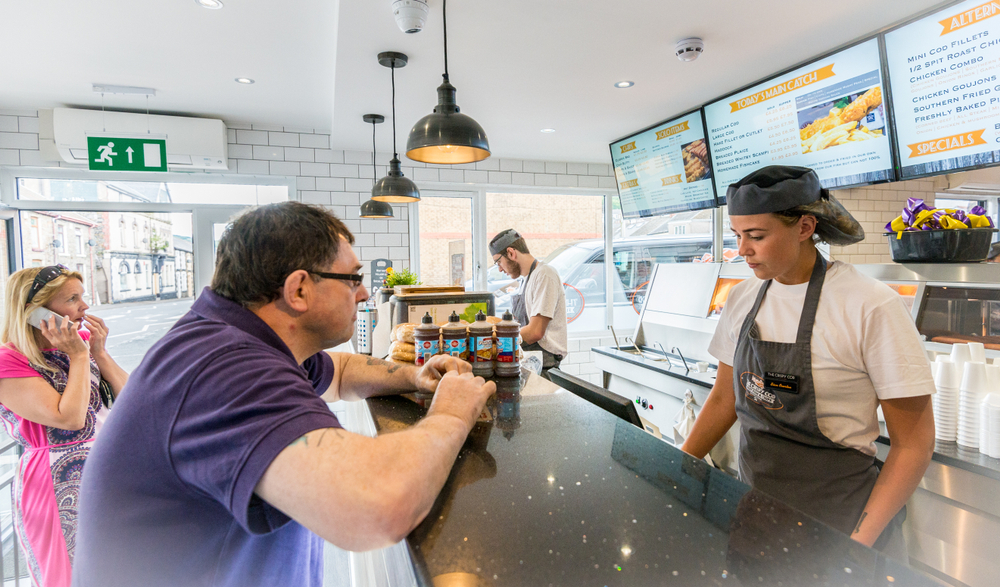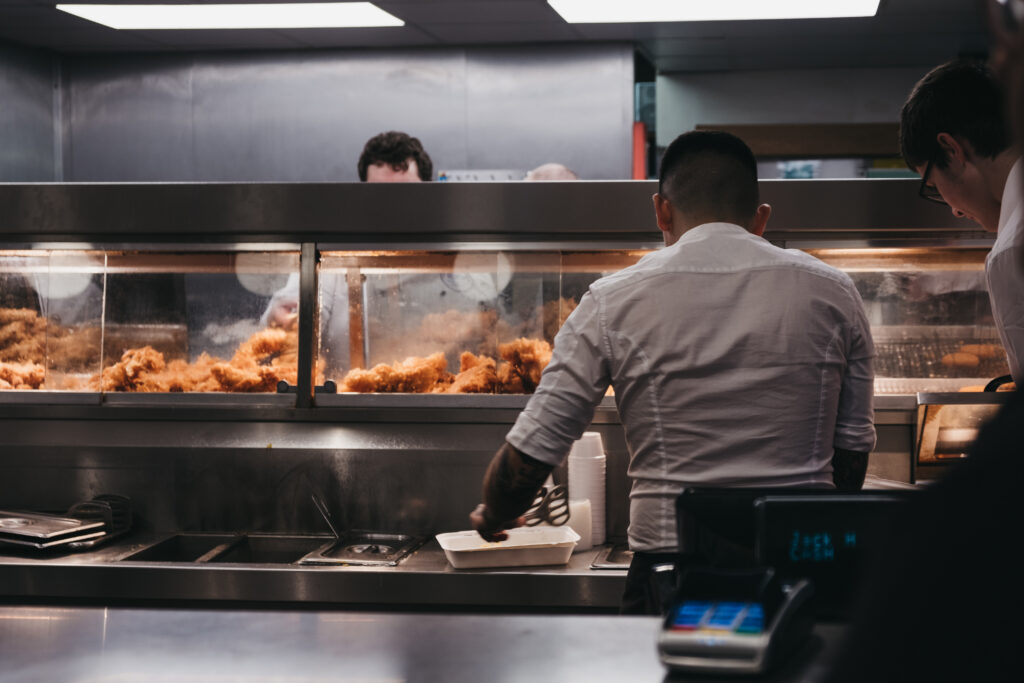The fish and chip industry, along with broader hospitality, is facing significant pressure following changes to National Insurance Contributions. Martin Jones, partner at chartered accountants UHY Hacker Young LLP, talks about what’s happening, what it means, and how businesses can adapt
Walk us through the recent changes introduced in April and how they’re affecting the hospitality sector, particularly fish and chip shops
The changes from the beginning of April this year saw National Insurance increase from 13.8% to 15%, adding further cost pressures for businesses. The other damaging thing for hospitality was the earnings threshold at which employers start paying NI on employees’ earnings, came down from £9,100 to £5,000, which meant more people are caught. That affects hospitality and fish and chip shops, especially if they’re employing part‑time, seasonal or student workers. Some businesses are saying this adds £500 to £1,000 on average per employee in terms of additional cost. I read an article from November 2024 which quoted a Torquay chip shop owner, Lorraine Arnold, who said the NI increase would add over £700 per employee. That’s a significant amount of money. That’s the backdrop, and that’s why there’s been a lot of pushback from bodies such as UKHospitality, which is speaking out against the changes.
Given the rise in costs, what practical actions can fish and chip shops take to recoup costs or save money?
There are a few options, but they are fairly limited. The one good piece of news is that the Employment Allowance was increased from £5,000 to £10,500, so whatever your NI bill is, you can deduct an increased amount – and businesses need to make sure they’re claiming that. One thing small fish and chip shops need to note is that this doesn’t apply to sole‑director companies; you need at least two directors paid more than £5,000 each to qualify.
Another option is salary sacrifice schemes, where you can switch your salary into pension contributions. If you’re paying yourself £30,000 to £40,000, you could consider putting, say, £5,000 into the pension pot instead, reducing employer NI that way. Other schemes like childcare vouchers, cycle‑to‑work and electric vehicle schemes also offer tax breaks and NI exemptions.
Then there’s hiring strategy and workforce planning. Fish and chip owners could look at smarter staff scheduling and labour‑management software to optimise shifts. Using self‑employed contractors, who attract lower NI, or apprentices under 25 on approved schemes, since their NI can be exempt, may work for some businesses too. Another option could be to offer non-cash benefits instead of pay rises, for example, giving people more holiday or allowing flexible working arrangements. It means you are paying less, so there’s less NI. Reducing headcount or freezing recruitment is another option although this is really a last resort.

What about prices? Should businesses be passing increased costs on to customers?
According to the Office for Budget Responsibility, businesses are expected to pass on 60% of the increased costs to consumers and employees (via price hikes or lower real wages) and absorb 40% through reduced profits. We are certainly seeing this echoed in hospitality with the majority of shops increasing prices. Some customers may baulk at that, but if you’re providing good food and good service, then I think it’s easier to pass on the price increase. If you’re not so slick, and you’re not getting good reviews or ratings, then it becomes harder to justify those price increases. I read an interview with The Big Fish in Stroud, Gloucestershire, where the owner, Josefina Fernandes, said, if they passed on the full increases, they would be out of business. She recognises she can’t pass on the whole burden and wants to keep prices reasonable.
How can businesses plan in the current climate?
Businesses need to do budgeting and forecasts, not just costs and revenue, but also their breakeven point. Then look at costs line by line: supplier agreements, food costs, energy. With energy, look for alternate suppliers or fixed‑rate deals. Are solar panels an option if a business has roof space? Investing in energy efficient kitchen equipment can also pay dividends. Government policy is unstable at the moment, which, unfortunately, does make survival and planning difficult.
What about staff effectiveness and technology? How can those help?
Multi‑skilling is big. Cross‑training staff to handle prep, serving, cleaning, and scheduling adds flexibility and avoids over-hiring. Menu simplification reduces prep time and staffing needs, while focussing on high margin items and cutting less popular or labour-intensive dishes can also help. Payroll automation, mobile ordering apps and self-serve kiosks can reduce front-of-house staffing while loyalty platforms schemes can boost repeat business without increasing marketing spend. Choosing delivery partners carefully — local versus national — can reduce fees while keeping service quality.

Something often talked about in our industry is a VAT cut for hospitality or an increase in the threshold at which businesses pay VAT. What is your take?
I hope VAT comes down, I do, but I can’t see it happening because it is a huge revenue stream, and giving hospitality a discount would put pressure on other sectors. Similarly, raising the VAT threshold would offer a significant boost to small businesses by removing more of them from the VAT net, providing welcome relief and easing administrative burdens. But again, I don’t expect change soon. It’s like Personal Allowances, they have been frozen when they should be going up with inflation. It is frustrating, and it’s a real challenge.
Are there any upsides or opportunities in the current climate?
Opportunities can come from others closing. If, for example, two chip shops exist in a town and one closes, the survivor picks up the business. There’s also scope for mergers or acquisitions to scale up, which reduces costs. So, look for acquisitions or partnerships if expansion is on your radar.
Looking ahead, do you see brighter days for the sector?
Absolutely. Hospitality is a very resilient sector, and the people working within it are passionate. They have survived Covid and the cost‑of‑living shocks; some really tricky times. The strong ones will survive. The worry is that demographics are shifting, and younger people are not going to fish and chip shops as much as the generation before. But shops will adapt with new menu options, delivery and tech adoption. The goal is to focus on quality, efficiency and your community. That’s how successful operators will thrive.










